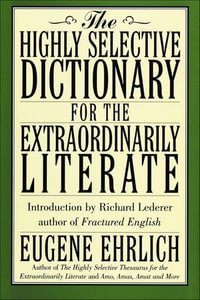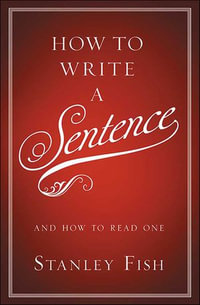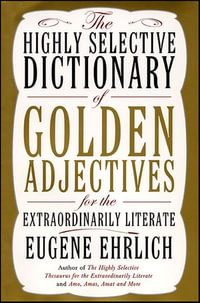
At a Glance
eBook
RRP $399.00
$359.99
10%OFF
or
Instant Digital Delivery to your Kobo Reader App
ISBN: 9789400990654
ISBN-10: 9400990650
Series: Social Sciences (R0)
Published: 6th December 2012
Format: ePUB
Language: English
Publisher: Springer Netherlands
Volume Number: 11
You Can Find This eBook In
Non-FictionLanguage & LinguisticsLinguisticsGrammar, Syntax & MorphologyPhilosophySemantics & Discourse AnalysisPhilosophy of LanguageLanguage Learning & TeachingLanguage Teaching & Learning Material & CourseworkGrammar, Vocabulary & PronunciationLiterature, Poetry & PlaysHistory & Criticism of Literature
This product is categorised by
- Non-FictionLanguage & LinguisticsLinguisticsGrammar, Syntax & Morphology
- Non-FictionPhilosophy
- Non-FictionLanguage & LinguisticsLinguisticsSemantics & Discourse Analysis
- Non-FictionLanguage & LinguisticsLinguisticsPhilosophy of Language
- Non-FictionLanguage & LinguisticsLanguage Learning & TeachingLanguage Teaching & Learning Material & CourseworkGrammar, Vocabulary & Pronunciation
- Non-FictionLiterature, Poetry & PlaysHistory & Criticism of LiteratureLiterary Theory
- Non-FictionReference, Information & Interdisciplinary SubjectsInterdisciplinary StudiesSemiotics & Semiology
























